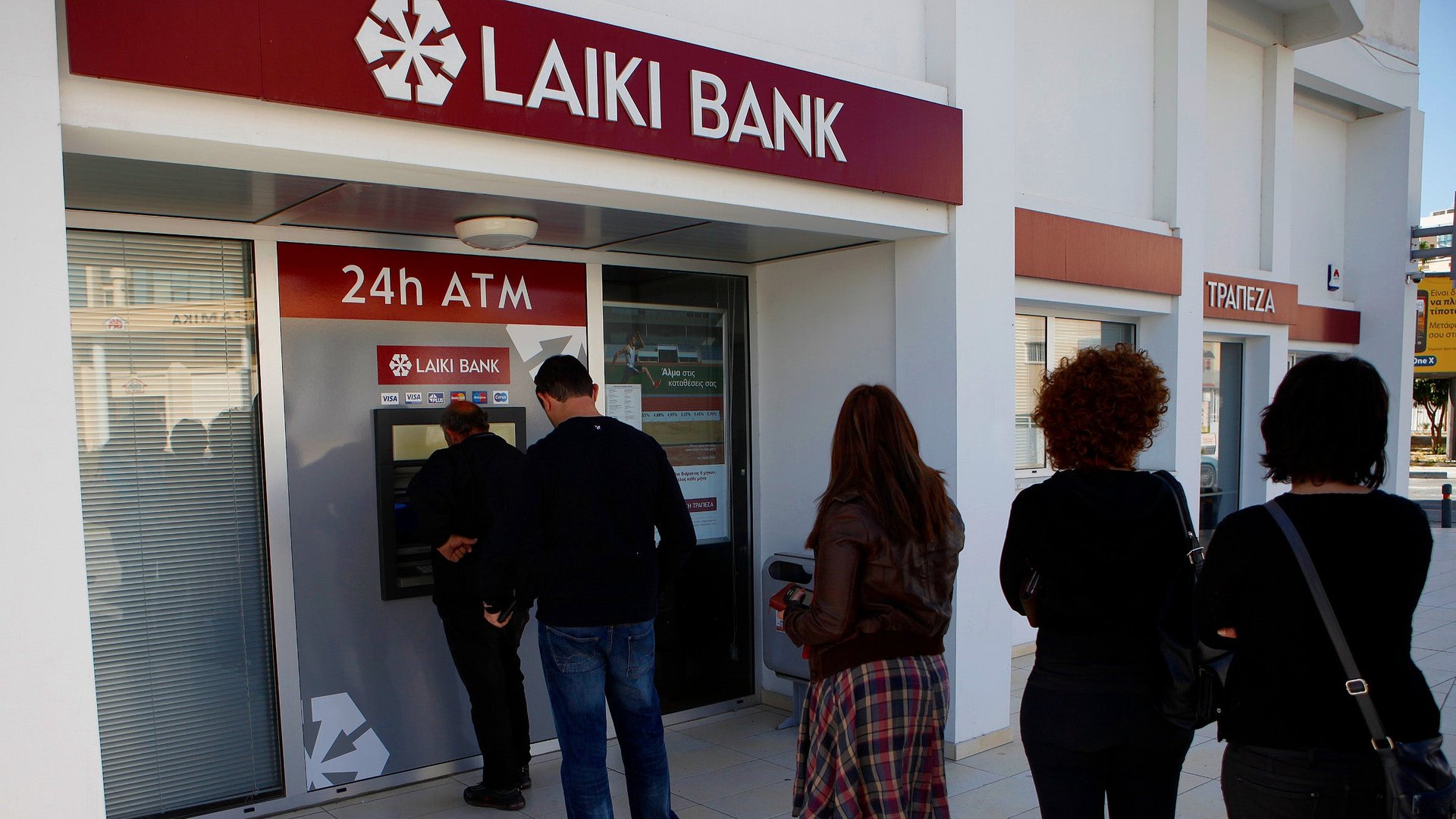The blunder behind the Cyprus bailout
The European officials rescuing Cyprus from financial crisis have created a furor with their last-minute plan to solve a very tricky problem.


The European officials rescuing Cyprus from financial crisis have created a furor with their last-minute plan to solve a very tricky problem.
While the the European Central Bank, European financial ministers and the International Monetary Fund intended to create stability and confidence in the European financial system and the Euro, they raised fears of bank runs and sell-offs instead.
Cypriots rushed to ATMs to withdraw money on Saturday, the day after the troika announced a rescue plan that includes a package of loans, but also a one-time tax on bank deposits. That tax applies to accounts whether or not they have more than the €100,000 guaranteed by the country’s deposit insurance program. Equally notable, the rescue plan included no concessions from the country’s creditors. Cyprus’s new government is attempting to change the terms of the deal, which will prevent a Cypriot default and likely exit from the European monetary union.
The actual size of the bailout package, €10 billion from the troika and €5.8 billion from the depositor bail-in, is fairly small. But officials, led by creditor-country Germany, were torn between a rescue that might confirm the precedent reluctantly set by Greece’s “unique” rescue (when the troika restructured the country’s debt) and their desire to avoid bailing out Cyprus’ poorly-managed financial system, which many Russians use as an offshore financial haven. It’s not clear that European leaders asked Cyprus’ lenders to take a share of the loss on the country’s debt, and eventually ran out of time to do so.
The resulting plan of public loans in exchange for austerity and the deposit tax puts most of the impact on Cyprus. Public reaction to the deposit tax has set off worries that bank runs will follow not just on the island nation, but also in troubled economies like Italy and Spain, despite officials’ attempts to assert that this rescue, too, is a unique, one-time case, related to the country’s bloated financial system. This is, of course, not a very auspicious time for capital to flow out of Europe’s financial system.
In its haste to avoid the kind of precedent that would imply that Europe’s surplus countries bear more responsibility for the protection of the euro, Germany has set a different, worrisome political standard for the treatment of the countries on the European periphery. Cyprus’s financial system presents arguably a different case than the other countries on Europe’s periphery. But if this decision causes depositors to lose faith in the financial systems in those countries and withdraw money from the banks, the problem the troika is fighting will only be exacerbated. In the end, the Cyprus rescue effort is looking penny-wise and pound-foolish.